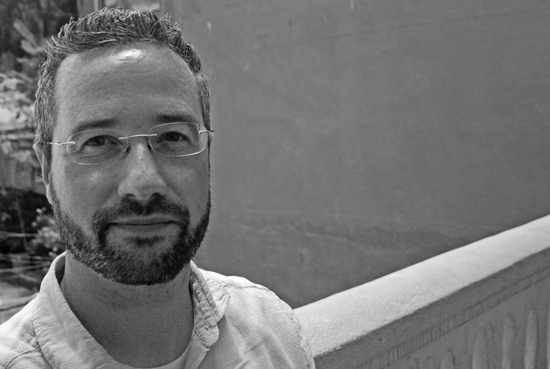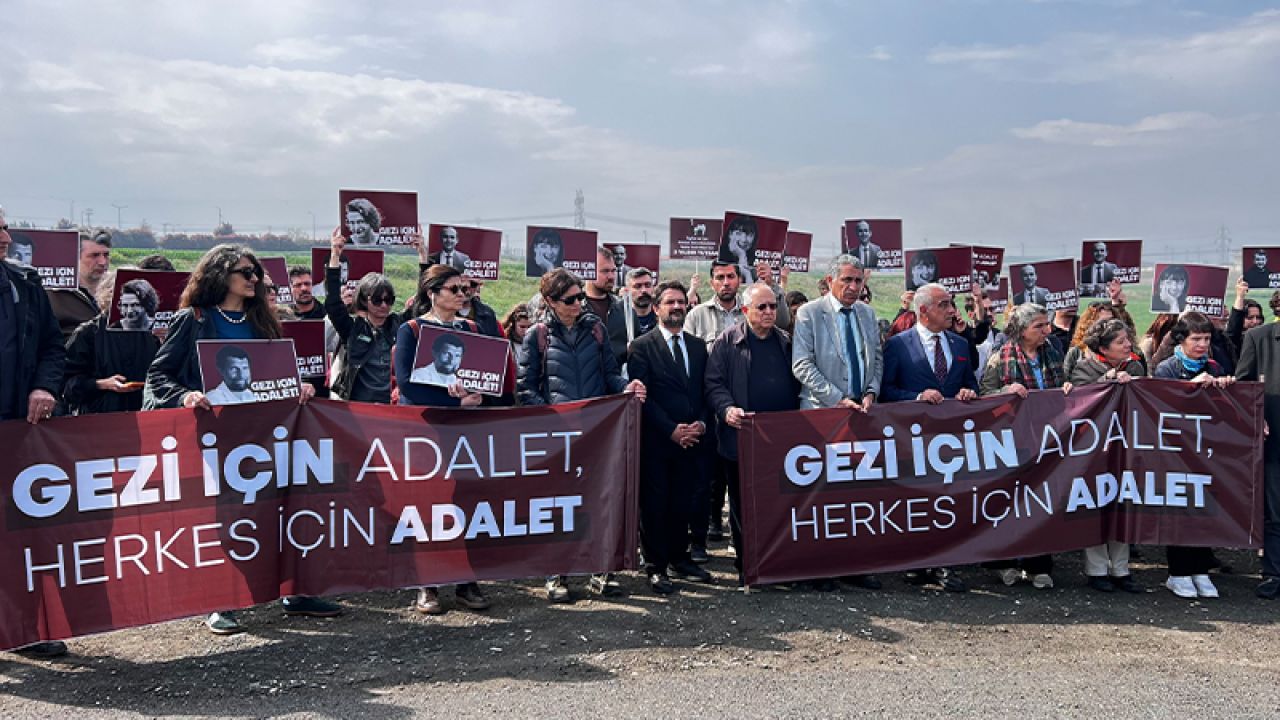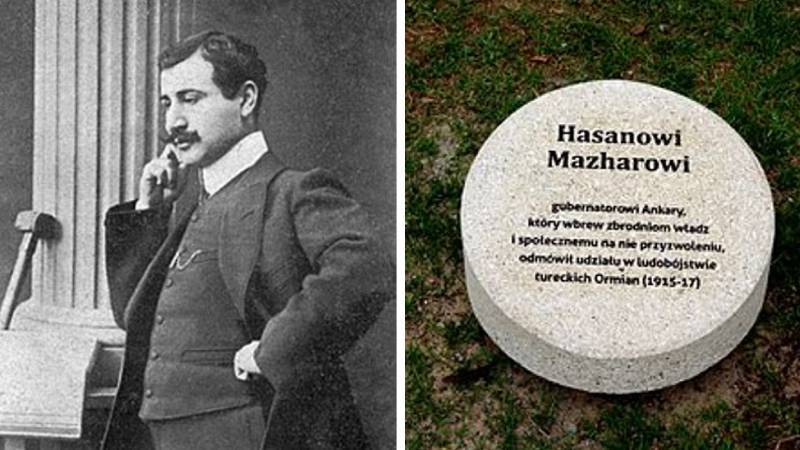For the last 12 years Sebastian James has spent his time as a missionary in Turkey, Syria, Palestine and Pakistan. His recently published book entitled “The Expected Awakening” has caused quite controversy in the Christian communities in Turkey.
Photopraph: UYGAR GÜLTEKİN
FERDA BALANCAR
ferda@agos.com.tr
Translation: Sebastian James
For the last 12 years Sebastian James has spent his time as a missionary in Turkey, Syria, Palestine and Pakistan. His recently published book entitled “The Expected Awakening” has caused quite controversy in the Christian communities in Turkey.
Sebastian James, 36 years old, from the state of Arkansas in the United States is a Christian missionary. He has spent the last 12 years sharing the gospel in Turkey, Syria, Pakistan and Palestine. James’ recently published book “The Expected Awakening” has caused controversy among Protestants in the Christian communities in Turkey. The reason for the controversy is the main idea of the book: “Turkey must confront the facts of the events that took place during the years of 1894-1923, the Armenian Genocide, and forced migration of the Greeks, Syriac and Christian communities from Turkey. Today the Turkish and Kurdish Christians must confess the sins of the Turkish society and the sins of their fathers and they must ask forgiveness from the ancient Christian communities. Until this happens, it will not be possible for Turkey to have spiritual peace or blessing.
In 2002, the crossroads with Turkey

We wanted to get to know Sebastian James, the writer of this book, which has upset not just the average Turkish reader, but also a portion of the Turkish and Kurdish Christian community. James was born in the southern state of Arkansas in the United States in 1978 and grew up in a Christian family who went to church every Sunday. At the age of 18, in his own words, he “dedicated himself to the Gospel”. His crossroads to Turkey began with his brother-in-law who was originally from Adana. He began to explain Christianity to his brother-in-law and later when he came to faith in Jesus Christ, they began to talk about why there were so few Christians in Turkey. When James saw that his brother-in-law did not really know the reason, he began to read books pertaining to the history of Turkey. Specifically, when James began to read about the events of 1894-1923, and what happened to the Christian communities he had a continued interest in Turkey. In the year 2002, he finished his Bachelors degree in Theology and moved to Turkey. While in Turkey he also completed a Masters degree in Islam.
He also knows Kurdish
As James was continuing to learn Turkish, he met a Syrian Kurdish friend in his class who had come to study medicine in Istanbul. He began to learn Kurdish from his friend and other Kurds who he met. After a while, James was invited to the Kurdish regions of Qamishli in Syria. While James was there he had several conversations about the Armenians and other Christians with the Kurdish people. While in Qamishli the Kurds spoke to him about how the Armenians were massacred. Those that were still alive explained to James in detail about how the Christians abandoned the area. It was there that James saw Armenian mass graves. After visiting Qamishli, he began to take trips to Eastern Turkey. James began going to Muş, Bitlis, Kars, Diyarbakır, Bingöl, and other provinces such as these. While in these provinces he shared the Gospel and helped in many social and medical assistance projects. During this period, James spoke with the people who lived in these areas about what happened to the Christians and why today there are almost no Christians living in these areas. He states, “Those that are living in Eastern Turkey, especially the Kurds, are more apt to face up to and confess what happened than those who live in Western Turkey. James explained that the reason for this is, “In those areas the Christian population was much greater and after the areas were unChristianized the people in those areas experienced great troubles”.
“There are lies that are taught to the people of Turkey”
All of these experiences led James to establish a link between Turkey’s current state and what happened in the past: “Today, a proportion of Turkey’s Christian population compared to other countries is the second least, just below Afghanistan. I began to think about the fact that one hundred years ago, in a country where the population was at least one-third Christian, why today there is such a small number. Moreover, in particular, despite all the efforts since 1965 until today, the Gospel is little known in Turkey. There are maybe only three or four thousand people that have believed in the Good News. Since then the established churches have been weak and ineffective.”
This is the reason James wrote “The Expected Awakening”: “I wanted to give a message to Turkey. The Bible states that ‘The one that hides his sins will not prosper, but whoever confesses them and forsakes them will find mercy.’ There are lies that are taught to the people of Turkey. These lies are about what has happened to the Christians in this country in the past, and they are about Christianity and the Bible itself. There are many lies that are told about the Armenian Genocide too. Not only do they try to cover up the sin they committed, they go further by insulting the Armenians by saying, ‘we did not do it, in fact they did it to us’. And by doing this they are again sinning.”
The Churches duty of Confrontation
According to James, the task of leading the confrontation about the sufferings that happened in Turkey, falls to the church. “In the United States and in many other countries of the world many massacres have occurred that are similar to the Armenian Genocide. However those communities confessed this and have asked for forgiveness. It was the churches that led this. In Turkey, it is not the Armenian, Greek or Syriac churches, it is the churches made up of Turkish and Kurdish background people that must lead in doing this. If the churches do not confront this issue, and do not ask forgiveness from the Armenian, Greek and Syriac brothers and sisters, what can we expect from the general public?”
Confronting the issue and an apology should come from the community. Stated James, “I have no expectations from the government. The state will only be moved if there is a strong call for an apology coming from within society. Every state only looks to their own interests and nothing else.”
What the Armenians must do
James answered our question, “Well what about the Armenians, What do they think about your book?”. James, “There is a huge pain in the hearts of the Armenians. Among them some go to Protestant churches, but they are not openly able to share the pain in their hearts. Some of my Armenian brothers and sisters that read my book have asked me, ‘It is easy to say you are sorry, but will this really compensate for anything?’. When I am faced with this question I remind them that the Bible calls them to forgive. The Turks and Kurds must apologize and the Armenians must be ready to forgive.”
Different reactions to the book and a forth-coming statement
After his book was published James received very different reactions, “After the book was published, a Bible institute that I had served with cut off all relationship with me. A pastor in another church will no longer meet with me. Another person that is in leadership of another church, who claims to be a Christian, has threatened me. I sent the book to the pastors of the churches in Turkey. I did receive some positive responses from them. Some of them did state that, ‘It is not the right time for this, because it will cause a reaction’.”
James made it very clear that his purpose was not to insult Turkish people or demean the country of Turkey. “Many of my closest friends are Turkish. After this I want to live in Turkey. My desire is that Turkey will confront its’ sin of the Armenian Genocide and attain peace”.
James also has a project for the future, “I want to jointly prepare a text with Turkish and Kurdish Christians. This text will be written as a type of manifesto containing a confrontation with the evils that were done against the Christians and the Armenian Genocide. It will be a call to confront the issue, and will contain the desire for the Turkish and Kurdish churches to ask for forgiveness. The document will contain a statement of apology to be given to the Armenians, Greeks, Syriacs and ancient Christians communities in this country.”





